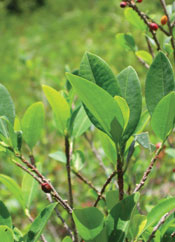What is cocaine?

Cocaine is a powerfully addictive stimulant that directly affects the brain. Cocaine was labeled the drug of the 1980s and 1990s because of its extensive popularity and use during that period. However, cocaine is not a new drug. In fact, it is one of the oldest known psychoactive substances. Coca leaves, the source of cocaine, have been chewed and ingested for thousands of years, and the purified chemical, cocaine hydrochloride, has been an abused substance for more than 100 years. In the early 1900s, for example, purified cocaine was the main active ingredient in most of the tonics and elixirs that were developed to treat a wide variety of illnesses.
Pure cocaine was originally extracted from the leaf of the Erythroxylon coca bush, which grew primarily in Peru and Bolivia. After the 1990s, and following crop reduction efforts in those countries, Colombia became the nation with the largest cultivated coca crop. Today, cocaine is a Schedule II drug, which means that it has high potential for abuse but can be administered by a doctor for legitimate medical uses, such as local anesthesia for some eye, ear, and throat surgeries.
Cocaine is generally sold on the street as a fine, white, crystalline powder and is also known as “coke,” “C,” “snow,” “flake,” or “blow.” Street dealers generally dilute it with inert substances such as cornstarch, talcum powder, or sugar, or with active drugs such as procaine (a chemically related local anesthetic) or amphetamine (another stimulant). Some users combine cocaine with heroin—in what is termed a “speedball.”
There are two chemical forms of cocaine that are abused: the water-soluble hydrochloride salt and the water-insoluble cocaine base (or freebase). When abused, the hydrochloride salt, or powdered form of cocaine, can be injected or snorted. The base form of cocaine has been processed with ammonia or sodium bicarbonate (baking soda) and water, and then heated to remove the hydrochloride to produce a smokable substance. The term “crack,” which is the street name given to freebase cocaine, refers to the crackling sound heard when the mixture is smoked.


